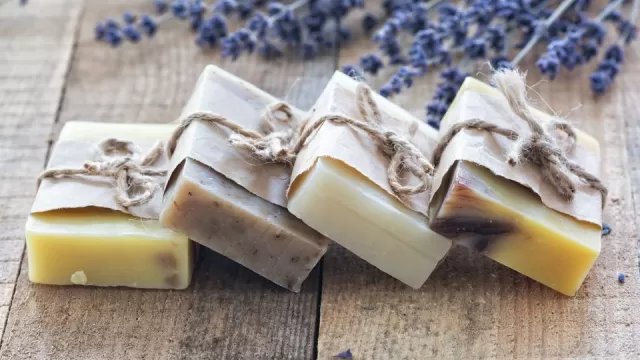Chemists Successfully Convert Plastic Waste into Miniature Bars of Soap
Sept 29, 2023
A potential solution to tackle the issue of plastic waste is beginning to take shape.

A potential solution to tackle the issue of plastic waste is beginning to take shape.
Approximately 60 percent of all plastic ever manufactured ultimately ends up in landfills or becomes environmental litter. Only a small fraction, about one-tenth, of plastic waste goes through the recycling process, with a significant portion being transformed into low-quality materials like park benches. Chemists are currently exploring methods for "upcycling" plastic into more valuable raw materials.
In an innovative breakthrough published in the Science journal on August 10, researchers have introduced a technique to repurpose old plastic into surfactants. Surfactants are essential components in a wide range of products, including lubricants, ski wax, detergents, and soap.
Guoliang Liu, a chemist from Virginia Tech in Blacksburg, remarked, "To me, plastic waste basically [is] aboveground crude oil. We don't have to go deep into the ocean or underground to mine [it] anymore" to produce valuable chemicals.
Surfactants, along with the two most common plastic types, polyethylene and polypropylene, are composed of molecular chains constructed from carbon atoms. However, surfactants have significantly shorter chains compared to plastics and contain groups of atoms that attract water.
To convert plastic into surfactants, Liu and his research team designed a specialized reactor that carefully heats and condenses plastic into a waxy substance with short carbon chains. They subsequently capped the chains of the wax with oxygen atoms and subjected them to an alkaline solution, resulting in the transformation of the wax into surfactant. When combined with a touch of dye and fragrance, this surfactant could be used to create small bars of soap.
However, it may take some time before upcycled plastic can effectively serve cleaning purposes. Currently, the researchers can only produce approximately half a gram of surfactant at a time. Liu and his team are actively working on scaling up the process and aim to collaborate with industry partners to make plastic waste management more environmentally conscious.
